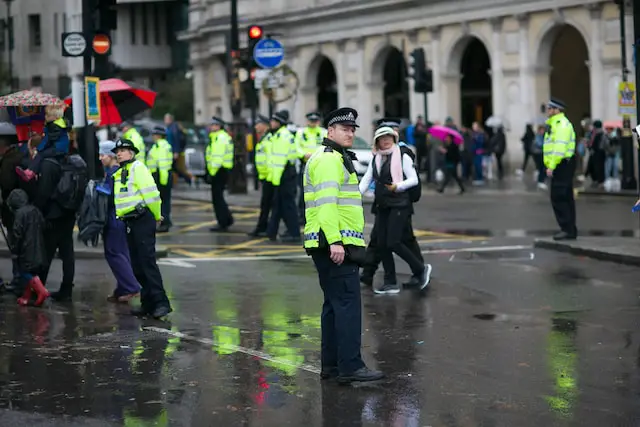Is it Illegal to Spit on the Ground
Spitting on the ground might seem like a harmless or thoughtless act, but it can have legal implications that vary depending on where you are. In this blog post, we’ll delve into the question: “Is it illegal to spit on the ground?” We’ll explore the diverse regulations surrounding this seemingly minor action and shed light on the potential consequences you may face if you decide to spit in public areas.
Understanding the legal aspects of spitting is not only important for avoiding penalties but also for fostering a more responsible and considerate community. So, join us as we navigate through local laws, exceptions, enforcement, and real-life examples to provide you with a comprehensive understanding of this often-overlooked issue. Whether you’re curious about the legalities or want to be a more informed citizen, this article will help clarify the murky waters of spitting in public spaces.
The Act Of Spitting

Spitting is the act of forcefully expelling saliva or mucus from one’s mouth onto a surface, often the ground. This behavior can occur for a variety of reasons, ranging from clearing excess saliva or mucus to expressing contempt or irritation.
While some instances of spitting may be accidental, others are deliberate actions. Understanding the nuances of spitting is crucial in comprehending the legal, cultural, and health implications associated with this seemingly ordinary act.
1. Defining Spitting
Spitting encompasses various situations and motivations:
Spitting can occur when an individual needs to clear excess saliva or mucus from their mouth. It is often an involuntary response to discomfort or irritation in the throat. This type of spitting is generally not intentional and is considered a natural bodily function.
Another context in which spitting takes place is when individuals dispose of substances like chewing tobacco, betel nut residue, or phlegm. This form of spitting is a deliberate act aimed at removing unwanted or harmful substances from the mouth.
Additionally, spitting can be a deliberate expression of contempt, anger, or frustration. In such cases, it is typically aimed at a specific target or area and may carry social or cultural connotations.
2. Cultural Perceptions
Spitting is perceived differently across cultures:
In some cultures, spitting is viewed as a sign of disrespect or contempt, particularly when directed toward someone or something. It can be a highly offensive gesture, and its interpretation may depend on the specific cultural context.
Conversely, in other cultures, spitting is considered a normal hygiene practice. For example, spitting after rinsing one’s mouth with water is common in some regions as a way to remove impurities and maintain cleanliness.
Cultural norms play a significant role in shaping how spitting is perceived and regulated within a particular community or society, influencing whether it is tolerated or discouraged.
3. Health Concerns
Spitting can pose health risks to both individuals and the community at large:
Spitting in public spaces can facilitate the transmission of infectious diseases, such as the common cold, influenza, or tuberculosis. Respiratory droplets expelled during spitting may contain pathogens that can infect others.
Moreover, spitting can contaminate public areas with potentially harmful bacteria, posing a sanitation issue. This contamination can affect the cleanliness and safety of public spaces, making them less pleasant and more hazardous for everyone.
Public health considerations are essential factors in the regulation of spitting, with the aim of mitigating health risks and ensuring the well-being of the broader community.
Is Spitting On The Ground Illegal In The US
In general, it is considered to be a public nuisance and can result in a fine or even arrest.There are a few reasons why spitting on the ground is considered to be illegal or inappropriate. First, it can spread disease.Spittle can contain harmful bacteria and viruses, which can be spread to others if it is deposited on the ground. Second, it is unsightly and unsanitary.
Spitting on the ground can make public spaces look dirty and cluttered. Third, it can create a public health hazard, especially in areas where people are at risk of contracting diseases such as hepatitis A and B.
Can You Get A Fine If You Spit On Someone Property
Yes, you can potentially receive a fine or face legal consequences if you spit on someone else’s property without their permission. Spitting on someone’s property without their consent can be considered a form of trespassing or vandalism, depending on local laws and regulations.
The specific penalties for spitting on someone’s property can vary widely depending on the jurisdiction and the circumstances surrounding the act. In some cases, it may result in a simple citation and a monetary fine, while in others, it could lead to more serious legal consequences.
It’s essential to be aware of and respect local laws and property rights to avoid legal trouble and maintain a considerate and responsible behavior towards others and their belongings. If you have concerns or questions about the laws related to spitting in your area, it’s advisable to consult with local authorities or legal experts for clarification.
Consequences Of Illegal Spitting

Engaging in illegal spitting, whether it’s spitting on someone else’s property, in a public area with specific regulations, or in violation of health codes, can result in a range of legal and personal consequences. Understanding these consequences is essential for promoting responsible behavior and avoiding potential penalties.
1. Legal Penalties and Fines
When caught spitting in violation of local laws or regulations, individuals may face legal penalties and fines. The specific fines can vary widely depending on the jurisdiction and the severity of the offense. In some cases, fines may be relatively minor, while in others, they can be substantial. Repeat offenses may also lead to increased fines or more severe legal consequences.
2. Potential Criminal Charges
In certain situations, illegal spitting can escalate to criminal charges, especially if it’s considered a deliberate act of vandalism, harassment, or assault. Criminal charges can have serious repercussions, including possible imprisonment or probation. The severity of the charges will depend on the circumstances and local laws.
3. Civil Liabilities
Spitting on someone’s property without their permission or in a manner that causes harm or damages can lead to civil liabilities. This means that the individual who spat may be held financially responsible for any harm caused, including property damage or health-related issues. Civil lawsuits can result in monetary settlements to compensate the affected party for their losses.
Conclusion
In our exploration of the act of spitting and its legal, cultural, and health implications, it becomes clear that spitting in public spaces is not a trivial matter. While it may seem like a minor and inconsequential action, it can have significant consequences, both legally and socially.
From the legal perspective, illegal spitting can lead to fines, criminal charges, or civil liabilities, depending on the circumstances and local laws. These consequences can result in financial penalties, legal troubles, and damage to one’s reputation.
Furthermore, cultural perceptions of spitting vary widely, making it essential to be aware of the norms and expectations in the community in which you find yourself. What may be considered acceptable in one culture might be deeply disrespectful in another.
Is it Illegal to Spit on the Ground
Spitting on the ground might seem like a harmless or thoughtless act, but it can have legal implications that vary depending on where you are. In this blog post, we’ll delve into the question: “Is it illegal to spit on the ground?” We’ll explore the diverse regulations surrounding this seemingly minor action and shed light on the potential consequences you may face if you decide to spit in public areas.
Understanding the legal aspects of spitting is not only important for avoiding penalties but also for fostering a more responsible and considerate community. So, join us as we navigate through local laws, exceptions, enforcement, and real-life examples to provide you with a comprehensive understanding of this often-overlooked issue. Whether you’re curious about the legalities or want to be a more informed citizen, this article will help clarify the murky waters of spitting in public spaces.
The Act Of Spitting

Spitting is the act of forcefully expelling saliva or mucus from one’s mouth onto a surface, often the ground. This behavior can occur for a variety of reasons, ranging from clearing excess saliva or mucus to expressing contempt or irritation.
While some instances of spitting may be accidental, others are deliberate actions. Understanding the nuances of spitting is crucial in comprehending the legal, cultural, and health implications associated with this seemingly ordinary act.
1. Defining Spitting
Spitting encompasses various situations and motivations:
Spitting can occur when an individual needs to clear excess saliva or mucus from their mouth. It is often an involuntary response to discomfort or irritation in the throat. This type of spitting is generally not intentional and is considered a natural bodily function.
Another context in which spitting takes place is when individuals dispose of substances like chewing tobacco, betel nut residue, or phlegm. This form of spitting is a deliberate act aimed at removing unwanted or harmful substances from the mouth.
Additionally, spitting can be a deliberate expression of contempt, anger, or frustration. In such cases, it is typically aimed at a specific target or area and may carry social or cultural connotations.
2. Cultural Perceptions
Spitting is perceived differently across cultures:
In some cultures, spitting is viewed as a sign of disrespect or contempt, particularly when directed toward someone or something. It can be a highly offensive gesture, and its interpretation may depend on the specific cultural context.
Conversely, in other cultures, spitting is considered a normal hygiene practice. For example, spitting after rinsing one’s mouth with water is common in some regions as a way to remove impurities and maintain cleanliness.
Cultural norms play a significant role in shaping how spitting is perceived and regulated within a particular community or society, influencing whether it is tolerated or discouraged.
3. Health Concerns
Spitting can pose health risks to both individuals and the community at large:
Spitting in public spaces can facilitate the transmission of infectious diseases, such as the common cold, influenza, or tuberculosis. Respiratory droplets expelled during spitting may contain pathogens that can infect others.
Moreover, spitting can contaminate public areas with potentially harmful bacteria, posing a sanitation issue. This contamination can affect the cleanliness and safety of public spaces, making them less pleasant and more hazardous for everyone.
Public health considerations are essential factors in the regulation of spitting, with the aim of mitigating health risks and ensuring the well-being of the broader community.
Is Spitting On The Ground Illegal In The US
In general, it is considered to be a public nuisance and can result in a fine or even arrest.There are a few reasons why spitting on the ground is considered to be illegal or inappropriate. First, it can spread disease.Spittle can contain harmful bacteria and viruses, which can be spread to others if it is deposited on the ground. Second, it is unsightly and unsanitary.
Spitting on the ground can make public spaces look dirty and cluttered. Third, it can create a public health hazard, especially in areas where people are at risk of contracting diseases such as hepatitis A and B.
Can You Get A Fine If You Spit On Someone Property
Yes, you can potentially receive a fine or face legal consequences if you spit on someone else’s property without their permission. Spitting on someone’s property without their consent can be considered a form of trespassing or vandalism, depending on local laws and regulations.
The specific penalties for spitting on someone’s property can vary widely depending on the jurisdiction and the circumstances surrounding the act. In some cases, it may result in a simple citation and a monetary fine, while in others, it could lead to more serious legal consequences.
It’s essential to be aware of and respect local laws and property rights to avoid legal trouble and maintain a considerate and responsible behavior towards others and their belongings. If you have concerns or questions about the laws related to spitting in your area, it’s advisable to consult with local authorities or legal experts for clarification.
Consequences Of Illegal Spitting

Engaging in illegal spitting, whether it’s spitting on someone else’s property, in a public area with specific regulations, or in violation of health codes, can result in a range of legal and personal consequences. Understanding these consequences is essential for promoting responsible behavior and avoiding potential penalties.
1. Legal Penalties and Fines
When caught spitting in violation of local laws or regulations, individuals may face legal penalties and fines. The specific fines can vary widely depending on the jurisdiction and the severity of the offense. In some cases, fines may be relatively minor, while in others, they can be substantial. Repeat offenses may also lead to increased fines or more severe legal consequences.
2. Potential Criminal Charges
In certain situations, illegal spitting can escalate to criminal charges, especially if it’s considered a deliberate act of vandalism, harassment, or assault. Criminal charges can have serious repercussions, including possible imprisonment or probation. The severity of the charges will depend on the circumstances and local laws.
3. Civil Liabilities
Spitting on someone’s property without their permission or in a manner that causes harm or damages can lead to civil liabilities. This means that the individual who spat may be held financially responsible for any harm caused, including property damage or health-related issues. Civil lawsuits can result in monetary settlements to compensate the affected party for their losses.
Conclusion
In our exploration of the act of spitting and its legal, cultural, and health implications, it becomes clear that spitting in public spaces is not a trivial matter. While it may seem like a minor and inconsequential action, it can have significant consequences, both legally and socially.
From the legal perspective, illegal spitting can lead to fines, criminal charges, or civil liabilities, depending on the circumstances and local laws. These consequences can result in financial penalties, legal troubles, and damage to one’s reputation.
Furthermore, cultural perceptions of spitting vary widely, making it essential to be aware of the norms and expectations in the community in which you find yourself. What may be considered acceptable in one culture might be deeply disrespectful in another.




